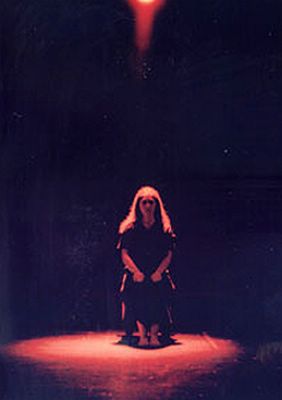|
|
 |
|
Arte Six ( Blog E - Zine )

Arte Six Theatre in Athens, Greece
- Antigone Worshipping see [ BlogSite ].
|
 |
|
|
 |
 Athens Festival 2006 Athens Festival 2006
Manos Hadjidakis: Music and songs from the cinema at the Odeon of Herod
Atticus
The Hellenic Festival opens officially its Athens Festival for 2006 with a tribute
to Manos Hadjidakis, the prolific and extremely popular composer of Greek music who first appeared on the musical scene in
the late 40's. The concert opens with a cinematographic suite featuring orchestral music in orchestration by Nikos Kypourgos
while the Enarmonia orchestra is conducted by Loukas Karytinos. The second part includes songs that Hadjidakis wrote for Greek
and foreign films, which are interpreted by Elefhteria Arvanitaki and Vassilikos. At the Odeon of Herod Atticus, Thursday
and Friday, June 1-2, 2006.
Manos Hadjidakis first appeared on the Greek musical scene in the late 40's. His first works include music for the Art Theatre of Karolos
Koun. Beginning in 1946, Hadjidakis went on to write the score for a great number of Greek and foreign films including "Counterfeit
Sovereign" (Yorgos Tzavellas, 1954), "Stella" (Michael Cacoyannis, 1955), "The Rapist" (Nikos Koundouros, 1956), "Madalena"
(Dinos Dimopoulos, 1960), "In the Cool of the Day" (Robert Stevens, 1962), "America-America" (Elia Kazan, 1962), "Blue" (Silvio
Narizzano, 1967), "Sweet Movie" (Dusan Makavejev, 1974), "Honeymoon" (Yorgos Panousopoulos, 1978), "Memed my Hawk" (Peter
Ustinov, 1983), "Quiet Days of August" (Pandelis Voulgaris, 1992), etc. In 1977, he wrote the music for the documentaries
"A la Recherche de l' Atlantide I" and "A la Recherche de l' Atlantide II" by Jacques Cousteau.
His musical genius
was evident from his very first works and soon he became one of Greece's eminent composers, who together with Mikis Theodorakis
are considered the founders of a Contemporary "School" of Greek Music.
The music of Manos Hadjidakis is characterised
by his beautiful melodies, wonderful orchestrations and a great sense of perfection. His works include ten cycles of songs,
film music (he won an Academy Award for his song "Never on Sunday" in 1961), music for the theatre as well as symphonic music.
His love for "pure beauty", which he found in the "Rebetica Songs" resulted in two great LP's based on the Rebetica
Songs, "Lilacs on the Dead Earth" and "Cruel April of 1945".
He shook up the conservative musical circles of the post war
era with his famous speech on the "Rebetica Songs" which were considered underground till that time.
During the last
years of his life he founded a symphony orchestra dedicated to music not usually played by other major symphony orchestras
either because of their conservatism or programming considerations to attract a full audience. The orchestra is called "Orchestra
of Colors" and is still in existence continuing his legacy.
| |
|
 |
|
|
 |
|
|
 |
|
|
|
|
Enter supporting content here
|
|
|
 |

